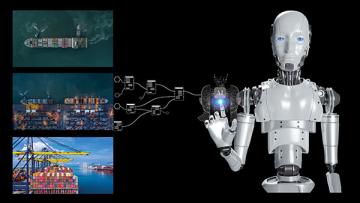Definition
A measure of greenhouse gas emissions, including carbon dioxide, used to evaluate the climate impact of operations.
Learn more about Carbon Emissions
Despite growing investments in carbon reduction, spend-based accounting methods may inadvertently inflate corporate emissions unless companies push for more precise, supplier-level data transparency.
Current CO2 tracking methods lead to inaccurate Scope 3 emissions reporting, but technology is enabling more accurate assessment methodologies.
Collaboration is the key to achieving full-scale commercialization of technologies needed to make progress on decarbonizing supply chains
Research and executive interviews paint an interesting picture as to whether net-zero goals are realistic, and even if they are being pursued.
The transportation and logistics industries are a cornerstone of economic growth and global trade, facilitating the movement of goods and services across borders and continents. However, this vital sector’s reliance on fossil fuels and outdated…
New EPA regulations seeking to reduce carbon emissions of heavy-duty trucks are problematic for many reasons and will create additional supply chain concerns.
Plans include 100% low-carbon electricity to power warehouses and a tripling of solar panel surface by 2025.
The five-year agreement targets real-time, multi-modal freight tracking.
To meet global and corporate carbon-reduction targets, transporters will have to significantly invest in and transition into alternative fuel transportation.



